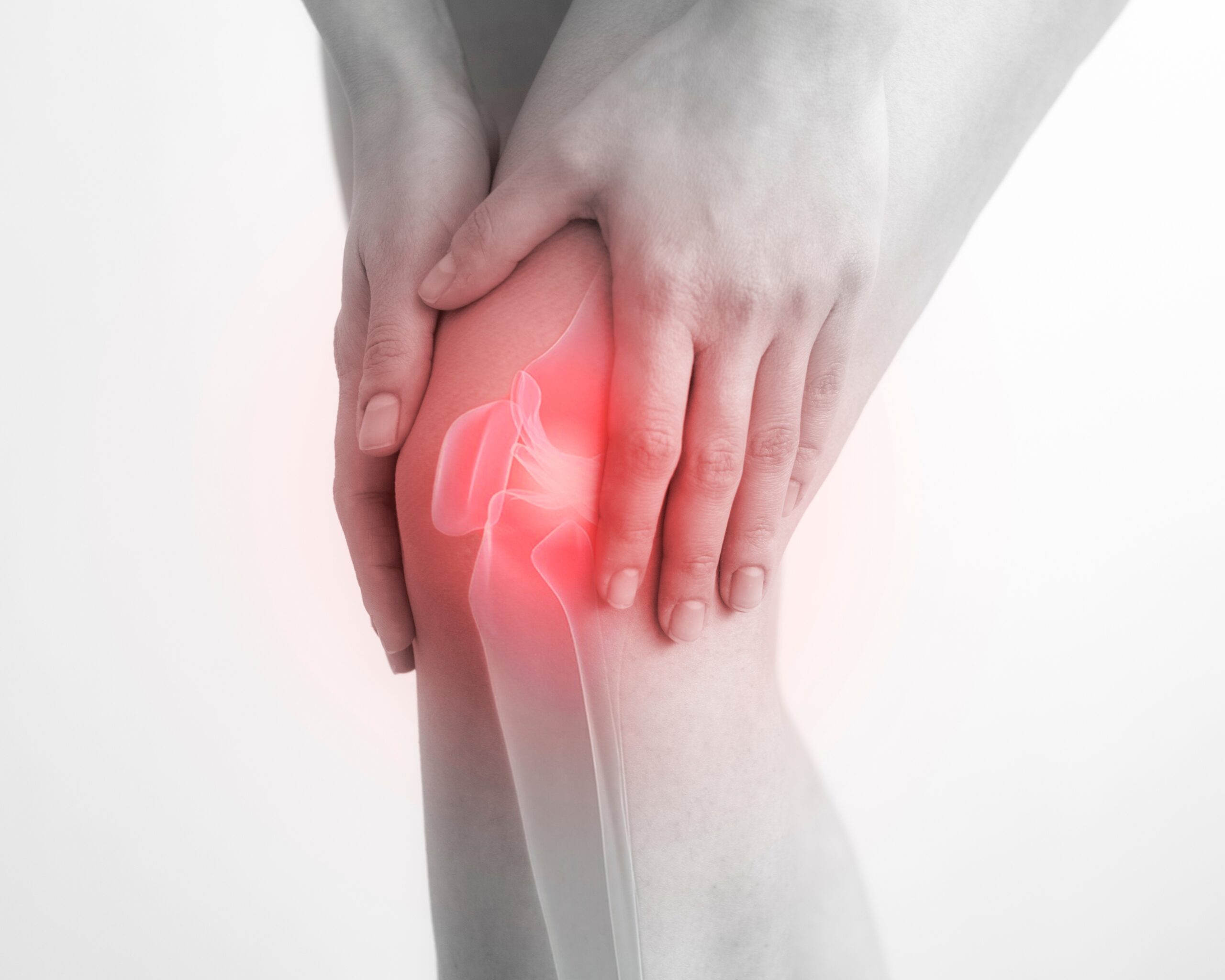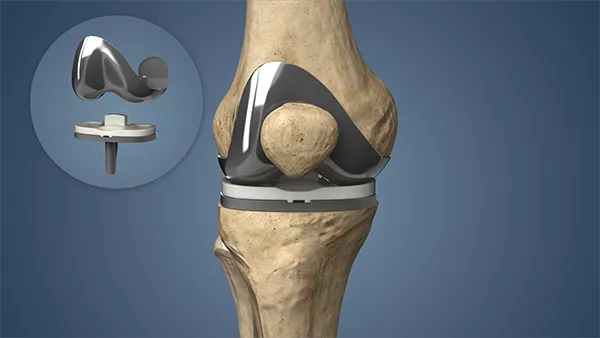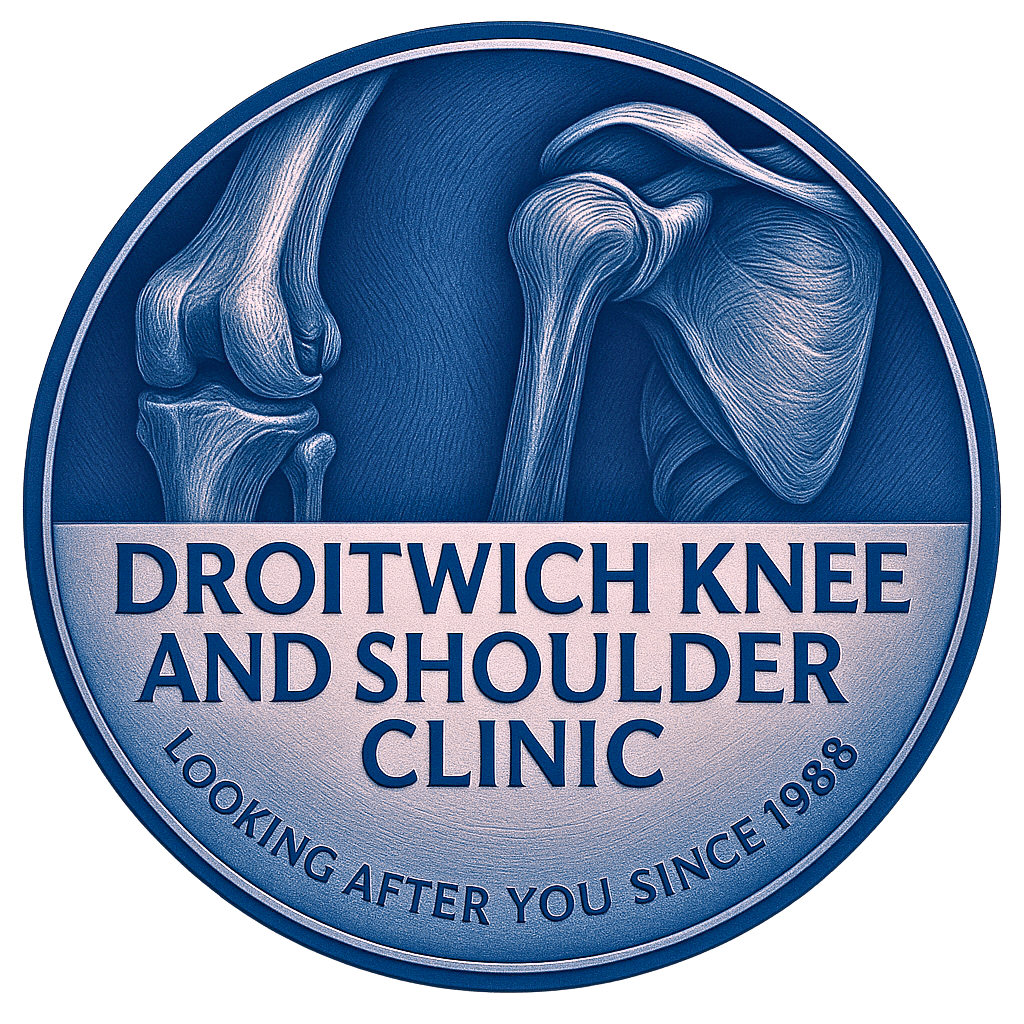Knee Replacement in Worcestershire
Take the first step toward a pain-free life and regain your mobility with a tailored knee replacement consultation.


Specialist Care for Lasting Relief and Mobility
If you are struggling with severe knee pain that limits your everyday activities, a knee replacement in Worcestershire could provide the long-term relief you need. At our specialist orthopaedic clinic, we offer advanced knee replacement surgery, including partial knee replacement, total knee replacement (TKR), and unicompartmental partial knee replacement, tailored to your condition and lifestyle. Our goal is to restore your mobility, reduce pain, and help you return to the activities you love with confidence.

What is a Knee Replacement?
A knee replacement operation involves removing the damaged or arthritic surfaces of the knee joint and replacing them with high-quality implants, often made of titanium or advanced medical alloys. Depending on the severity and spread of arthritis, you may benefit from:
- Partial knee replacement – replacing only the damaged part of the knee.
- Total knee replacement (TKR) – replacing the entire knee joint.
- Robotic knee replacement – offering enhanced precision and faster recovery times.
Why Consider Knee Replacement?
Many patients seek knee replacement surgery when non-surgical options such as physiotherapy, medications, or knee cartilage replacement therapy no longer provide relief. Common reasons include:
- Severe arthritis knee pain
- Persistent stiffness and swelling
- Difficulty walking, climbing stairs, or kneeling
- Pain disrupting sleep or daily life
Failure of previous treatments such as injections or arthroscopy
The Procedure: What to Expect
Our highly experienced knee replacement surgeons in Worcestershire provide both traditional and robotic knee replacement procedures, using minimally invasive techniques where possible. The procedure typically takes 60–90 minutes, and most patients can start standing and walking with physiotherapy support the day after surgery.
- Hospital stay: 2–4 days (varies by individual)
- Driving after knee replacement: usually 4–6 weeks post-surgery
- Return to normal activities: within 6–12 weeks, depending on recovery speed
Recovery and Rehabilitation
Knee replacement recovery is as important as the surgery itself. Our structured rehabilitation and physiotherapy programmes are designed to maximise flexibility and strength while preventing complications.
Typical recovery milestones include:
- Walking with support in 1–2 days
- Resuming light activities within 3–6 weeks
- Full recovery within 3–6 months (although healing may continue up to a year)
Our team provides tailored exercises after knee replacement while advising which knee replacement exercises to avoid. We also guide patients on how to sleep after knee replacement to ensure comfort during recuperation.
Cost of Knee Replacement in Worcestershire
The cost of knee replacement in Worcestershire varies depending on whether you require a partial, total, or robotic-assisted procedure. At our clinic, we provide transparent pricing and can discuss both NHS pathways and private knee replacement cost options.
Patients often ask: “How much does a knee replacement cost privately?” – The price usually depends on implant choice, surgeon expertise, and hospital facilities. We’ll provide a personalised estimate during your consultation.
Risks and Considerations
Like all major surgeries, knee replacement carries some risks, including infection, blood clots, or implant loosening. There are also disadvantages of knee replacement surgery, such as limited kneeling ability or scar tissue formation. However, with modern techniques and experienced surgeons, most patients achieve excellent results with significant pain relief and improved function.
Alternatives to Knee Replacement
Not every patient needs immediate surgery. Alternatives include:
- Injections (steroid, hyaluronic acid, or PRP therapy)
- Knee cartilage replacement therapy
- Bracing and physiotherapy
- Lifestyle modifications
If surgery is unavoidable, we will ensure you are fully prepared with the best advice and aftercare.
FAQs
Modern implants typically last 15–20 years, with many patients enjoying long-term results.
Most people recover within 3–6 months, though full strength and flexibility may take up to a year.
Some patients find kneeling uncomfortable, but with physiotherapy and time, many can kneel again.
High-impact activities such as running and jumping should be avoided. Walking, swimming, golf, and cycling are usually encouraged.
Private costs vary, but we provide clear guidance during your consultation to help you make an informed decision.
Options include physiotherapy, pain injections, bracing, or partial replacement depending on the extent of damage.
It’s best to sleep on your back with a pillow under your operated leg for comfort and to reduce swelling.
Medications, physiotherapy, and gentle exercises are often effective in managing nerve discomfort.
The procedure usually takes 60–90 minutes depending on whether it’s a partial or total replacement.

